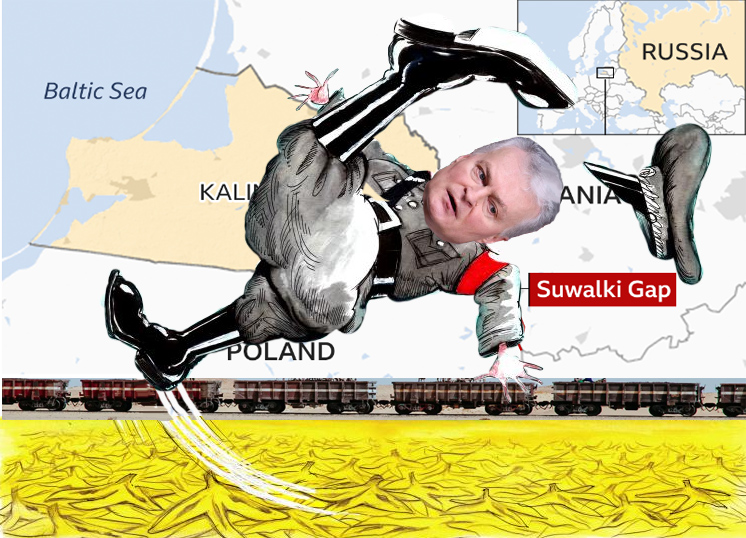

By John Helmer, Moscow
@bears_with
The action the Lithuanian government implemented over the weekend to stop Russian trains carrying sanctioned cargos into Kaliningrad is regarded in Moscow as a long anticipated move, prompted among Lithuanian officials by the British government. The initial Lithuanian embargo action has been followed by a second one this week extending the blockade to trucks and road transport. Neither action has been publicly announced by the Lithuanian government.
The first news came from Anton Alikhanov, the governor of the Russian oblast of Kaliningrad, following a notice sent to him by Lithuanian officials. That notice has not been published.
Lithuanian president Gitanas Nauseda (lead image) has said nothing.
Lithuanian Prime Minister Ingrida Simonyte announced through the British Broadcasting Corporation that the blockade was not a blockade because only some cargoes were halted, and because “Lithuania is complying with the sanctions imposed by the European Union on Russia for its aggression and war against Ukraine ” . She also told the British state radio “it was important not to overreact”.
She tweeted: “Any talk of a blockade of Kaliningrad is a lie. Lithuania is complying with the sanctions imposed by the EU on Russia for its aggression and war against Ukraine. The sanctions were agreed by all the EU member states on March 15…. Passenger transit is also taking place, under a special agreement by the EU, RU, & LT. Steel and ferrous metal products account for only around 1% of the total rail freight to Kaliningrad via LT.”
In the three days which have followed the Lithuanian action, the US and British Governments, the European Union (EU), and the North Atlantic Treaty Organization (NATO) have not supported the Lithuanian blockade.
The Russian Security Council met on Wednesday morning, but issued no statement on Lithuania. The Secretary of the Council, Nikolai Patrushev, who was in Kaliningrad on Tuesday, had announced there that the “consequences will have a serious negative impact on the population of Lithuania.”
Yesterday, at the same time as President Vladimir Putin was chairing the Security Council meeting, the Russian Foreign Ministry announced it is delaying “concrete measures” in reaction: “The measures will not be diplomatic, but practical, they are now being worked out in an interdepartmental format, We are not talking about this not because we are hiding something, but because the process of their coordination and elaboration is underway. I would like to emphasize once again (the third time for today’s briefing): we have told the European Union and Lithuania about the need to change the steps they have taken. Perhaps something from that side will be changed, and, accordingly, our reaction will be different.”
Here is a compilation of the official documents.
The US State Department, June 21:
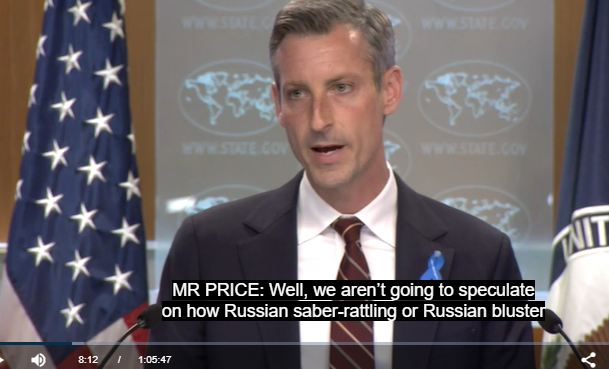
Source: https://www.state.gov/
“QUESTION: (Inaudible) about the tensions around Kaliningrad. What do you make of the statements from Russia threatening of serious consequences and the train?
MR PRICE: Well, we aren’t going to speculate on how Russian saber-rattling or Russian bluster – don’t even want to give it additional airtime. We have been very clear over the course of Russia’s war against Ukraine, and in fact well before Russia began its unprovoked invasion of Ukraine, that our commitment to NATO and specifically our commitment to NATO’s Article 5, the premise that an attack on one would constitute at attack on all, that commitment on the part of the United States is ironclad. Not only have we made that clear rhetorically, but together with NATO and with our own announcements of troop posture adjustments, we have reinforced our commitment to the NATO Alliance. We have reinforced NATO’s eastern flank, especially those countries who have been at the forefront of Russian threats over the course, in many cases, of many years.
We, of course, appreciate the unprecedented economic measures that many countries around the world, dozens of countries across continents that our allies and our partners, including in this case Lithuania, have joined us in taking against Russia for its unprovoked war in Ukraine. Of course, would refer you to Lithuania regarding its enforcement of EU sanctions.
QUESTION: So you fully support Lithuanian enforcement of the sanctions and against any threat from Russia?
MR PRICE: Lithuania is a member of the NATO Alliance. We stand by the commitments that we have made to the NATO Alliance. That includes, of course, a commitment to Article 5 that is the bedrock of the NATO Alliance. This is a campaign that includes dozens of countries around the world, including blocs of countries, in this case the EU but also individual countries using their national authorities. Lithuania has been a stalwart partner in this. We stand by NATO. We stand by our NATO Allies, and we stand by Lithuania.”
The UK Government, June 20-21:
The British Government issued no official statement on Lithuania and Kaliningrad except through editorial comments published by the BBC. The Foreign Secretary, Elizabeth Truss, has issued these statements:
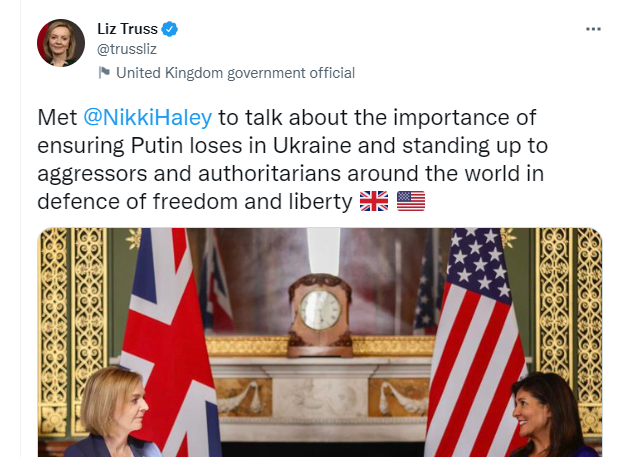
Source: https://twitter.com/trussliz/
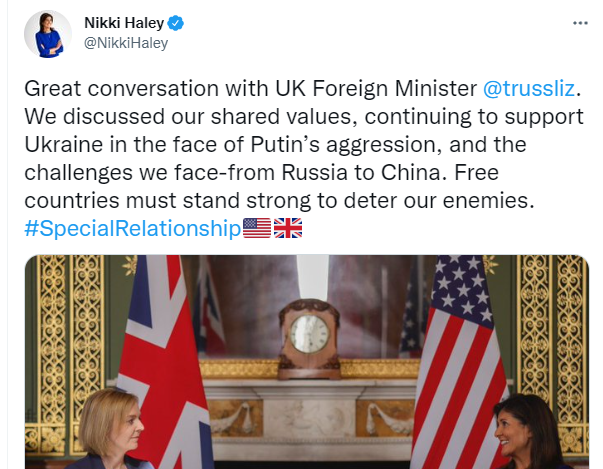
Source: https://twitter.com/NikkiHaley/
The European Union (EU) has been silent.
The EU President, Ursula von der Leyen, has issued these statements:
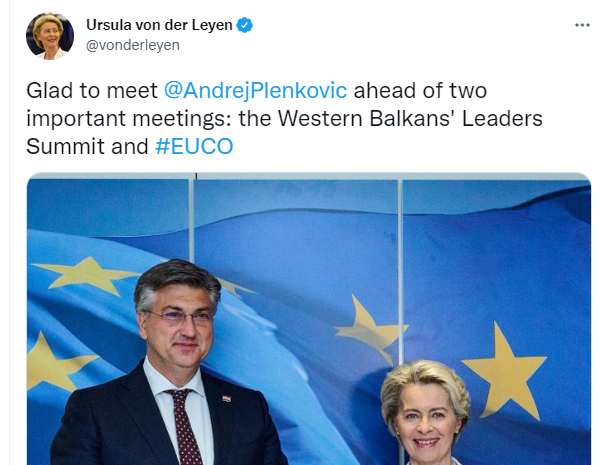
June 22 -- https://twitter.com/vonderleyen/
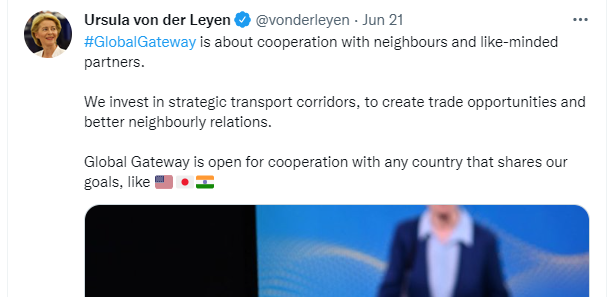
June 21 -- https://twitter.com/vonderleyen
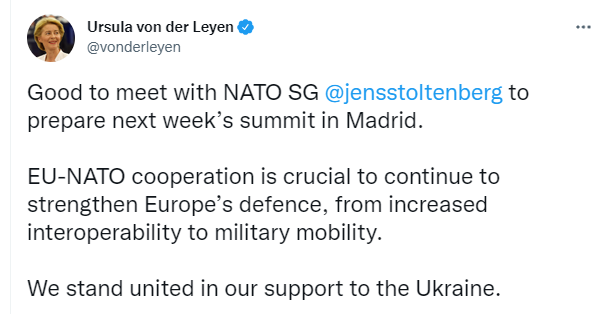
June 20 -- https://twitter.com/vonderleyen/
NATO has been silent.
A NATO summit meeting is scheduled in Madrid next week, June 28-30. There is no reference to Lithuania on the agenda. Secretary-General Jens Stoltenberg has issued this statement:
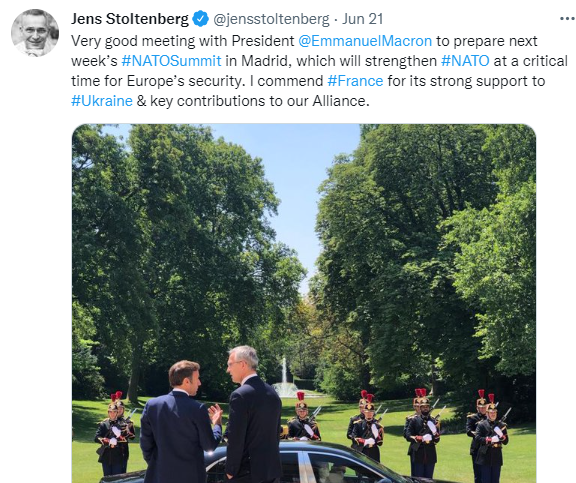
June 21 -- https://twitter.com/jensstoltenberg
Russian statements:
Kremlin spokesman, Dmitry Peskov, June 20: “This decision is truly unprecedented. It is a violation of absolutely everything. We understand that this is due to the relevant decision of the European Union – to extend sanctions to transit. We also consider it illegal. The situation is really very serious, and it requires a very deep analysis before preparing any measures or any decisions. This thorough analysis will be carried out over the next few days. It’s an element of the blockade, of course. I repeat once again: we need a serious, in-depth analysis in order to hammer out response decisions.”
Security Council Secretary Nikolai Patrushev, in Kaliningrad on June 21. “Russia will certainly respond to such hostile actions. Appropriate measures are being worked out in an interdepartmental format and will be taken in the near future. Their consequences will have a serious negative impact on the population of Lithuania.”
Kaliningrad Governor Anton Alikhanov – June 21.
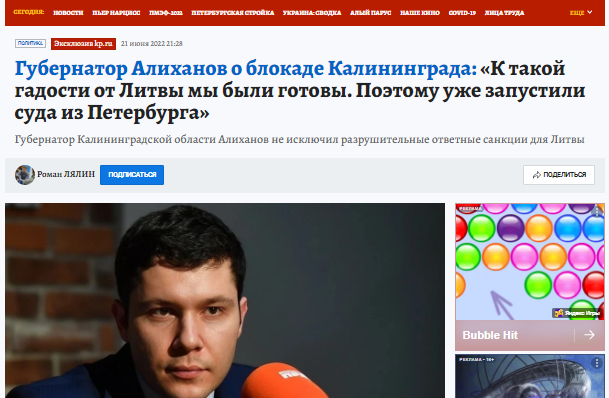
Source: https://www.spb.kp.ru/
“The Kaliningrad region was in a blockade due to the sanctions of Lithuania, which banned the transit of some goods from Kaliningrad to Russia and back. This decision affected building materials, metals, cement, oil, petroleum products, elite alcohol, caviar and other goods. But Kaliningrad does not despair. Now these and other cargoes will be redirected by the authorities of the region not via Lithuanian railways, but through the ports of St. Petersburg. KP-Petersburg learned the details personally from the Governor Anton Alikhanov.
– Today, the Secretary of the Russian Security Council, Nikolai Patrushev, arrived in Kaliningrad, at a meeting with whom you just discussed the sanctions imposed?
– Yes, during a personal meeting with Nikolai Platonovich, we discussed issues of energy, transport security of the region, as well as information security, including ensuring our stable connection with the main territory of the Russian Federation. Then the Security Council itself dealt with border policy, and we have discussed projects within the framework of cross-border cooperation programs that we had with the European Union until recently.
– Did you discuss that the situation is threatening? Or vice versa – is everything stable?
– I would not paint any picture of the disaster. In fact, within the framework of the same Security Council, we made decisions to strengthen the transport security of our region. And the decisions of those past years have given us the opportunity to feel confident enough now. We have additional transportation capacities that are already involved: these are four vessels that are already on the line. The fifth new vessel is coming into operation on Friday. And even taking into account the aggressive actions of our neighbours, we have full confidence that we will be able to redistribute traffic flows so that the sanctioned cargo that they do not allow through their territory will be directed to the sea lanes connecting our region with St. Petersburg. This, of course, is extremely unpleasant, inconvenient in some sense, but we do not see anything catastrophic in this. We were ready for such nastiness.
– Nikolai Patrushev says that we will respond harshly. What are the possible answers?
– Look. I think that it is not in my competence to voice the answers, but I assure you that there are a great many such options. And, unfortunately for the Baltic states, their transport complex is extremely dependent on cooperation with the Russian Federation, both in transit and cargo base issues. I think the answers can be extremely devastating in terms of the consequences. And I really hope that, taking into account this situation, taking into account the consequences that may arise for this industry, the decision of European countries will be changed; and that Kaliningrad transit will not be restricted as the [Lithuanians] have restricted it at the moment.
– Additional vessels from St. Petersburg: how many will there be, and when will they go?
– The first additional vessel Kholmogory will be released on Friday. This is a vessel of the Northern Shipping Company. This company is ready to put several more vessels on the route, depending on our needs. We are currently working with them, studying how much we need, because we will reorient some of the goods, some of the cargo that are not subject to sanctions, from the sea ferry crossing to the usual railway tracks. And in this way we will free up capacity for the transportation of sanctioned cargo on existing ferries. Therefore, it is quite difficult to say exactly the number of new vessels.
Nevertheless, the new vessel is already leaving the port of Bronka – from St. Petersburg to us in Kaliningrad. And over the next few weeks we will be bringing on line the new vessels. The maximum that we thought we may require is seven vessels. But I think that in reality the figure will be less, due to the fact that some of the sanctioned goods are already being carried by ferries, and some of the non-sanctioned ones will free up space. We need a maximum of seven vessels, but perhaps, in fact, we will need three or four.
– Will they all go from St. Petersburg and Leningrad region?
– Yes. These vessels will carry sanctioned cargo – coal, fuel, metal structures, metals, cement. These are the main gazetted cargoes, and the sanctions also cover the finished products which are exported from our region — these are automotive components, cars, trucks, dump trucks that we produce here, as well as the production of chemical products.
– Explain to ordinary people – is it more expensive to carry ships?
– You know, there are different ways for different cargoes. But our task, and we are currently working on this issue, is to ensure that the cost of sea transportation is similar to the tariffs that apply on the railway.
– That is, we used to pay to the European Union, and now we will pay to our ports?
– The wording is controversial for me personally, I will not confirm or deny it. But I can say that when the money stays in Russia and does not go to the Lithuanians, as it seems, it is good in any case.
– So we can also win?
– Yes, of course. As a result I think we won’t lose.
– Will the sanctions hit Lithuania harder or us?
– Listen, these sanctions have already hit Lithuania. The payment for rail transit for Lithuania, in general, the economy of Lithuanian railways is one of the cornerstones of their budget, so for them it is also such a boomerang. Not to mention the potential retaliatory steps of the Russian Federation in relation to the Lithuanian transport sector. Therefore, I am sure that they are not happy about what is happening.
– How much will they lose approximately?
– I’m not going to name it now, I’m afraid to be inaccurate. But yesterday I was talking about alcohol labeling — if, for example, we say that we refuse to take alcohol, which they label there. Supposing we allow it to be labeled only on our territory as part of an experiment that is being conducted on behalf of the president, then our estimates were such that this is about €300 million of turnover, which we can take from them and transfer to the Russian Federation. I believe that this money will be an additional source for equalizing the ferry costs.
– Have the Lithuanians themselves contacted you?
– No, God forbid, they have curtailed all types of contacts with us since 2012, unfortunately. That’s why they haven’t contacted me for a long time.
– Were you forbidden to carry only alcohol, truffles and caviar from the products?
– It is necessary to look at alcohol, they banned only luxury. It doesn’t mean all the alcohol. Relatively speaking, Italian and French wines continue to be supplied.
– Will it affect tourists?
– No. The sun is shining, tourists are walking around the city, we are waiting for everyone, you are welcome. Everything is fine with us, we live in a normal mode. This situation will not affect tourists at all.
– What is the percentage that these sanctions will be lifted?
– It’s like in the famous joke: “What percentage of the probability that you will meet a dinosaur on the street? 50-50, either you will meet or not.” It’s about the same with the Lithuanian authorities. Like with a dinosaur.”
Military options, June 20 – Moskovsky Komsomolets
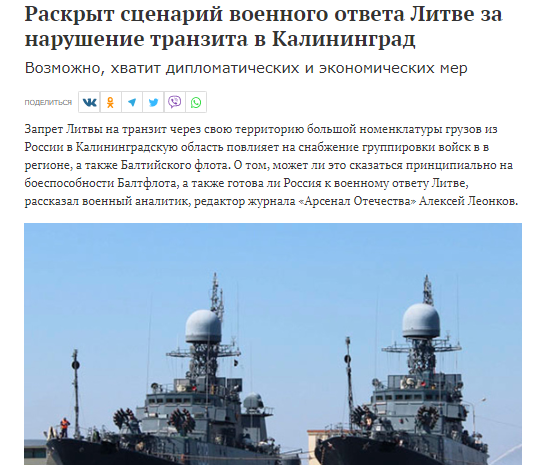
Source: https://www.mk.ru/
“The scenario of a military response to Lithuania for violation of transit to Kaliningrad is revealed — perhaps diplomatic and economic measures will be enough
Lithuania’s ban on transit through its territory of a large range of goods from Russia to the Kaliningrad region will affect supply of the troops deployed in the region, as well as the Baltic Fleet. Alexey Leonkov, a military analyst and editor of the Arsenal of the Fatherland magazine, talked about whether this could fundamentally affect the combat capability of the Baltic Fleet, as well as whether Russia is ready for a military response to Lithuania.
In his opinion, Lithuania’s ban on land transit, in the near future, will not significantly affect the supply of goods to the Baltic Fleet.
‘After all, they do not block the sea route along the Baltic,’ says Leonkov. ‘And they are unlikely to take this step at all, since it would actually mean declaring war on Russia. The ban on supplies will have a greater impact on the development of the Kaliningrad region. As for our possible military response, a number of factors should be taken into account. Our Foreign Ministry has already decisively told the representatives of Lithuania and the EU that they violate the agreements that we had when Russia recognized Lithuania as an independent state. Then we were promised unhindered transit to the Kaliningrad region.’
According to the expert, a military response will be the last measure that Russia will be forced to use if diplomatic and economic levers do not work in relation to Lithuania.
‘And we still have a lot of such economic levers in relation to Lithuania,’ Leonkov clarifies. ‘Moreover, they should be applied not gradually, but immediately, so that this country would be shocked by our actions. If this does not help, then, of course, military measures will have to be applied, which will have to ensure unhindered passage to the Russian enclave.’
‘Many believe that in this case, Article 5 of the NATO collective security treaty will have to operate. This is interpreted as a mandatory entry into the war of the entire Alliance, if an attack is made on one or more NATO countries. In fact, the wording of this article is not as unambiguous as it seems to many. It does not speak of the automatic entry into the war of the entire NATO alliance because of a single country situation. Everything is stipulated by a number of conditions. And another big question is whether NATO countries are ready to get involved in a war with Russia for the interests of Lithuania, realizing that such a war is likely to lead to a conflict with the use of nuclear weapons.’
NATO TREATY ARTICLE FIVE
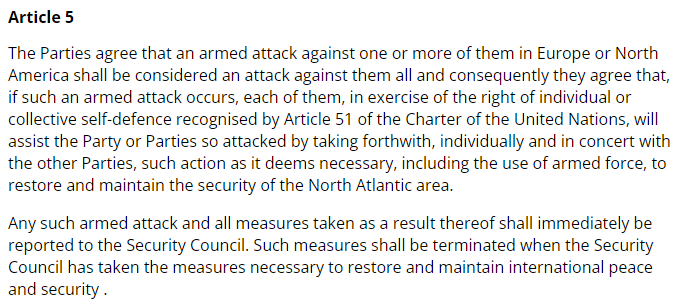
Source: https://www.nato.int/
Alexei Leonkov believes that in the current situation, Europe is not inclined to aggravate the situation. Moreover, Lithuania claims that it has coordinated its actions with the EU. But so far, Vilnius’ statements have not been officially confirmed and the Lithuanian steps have not been supported. ‘I think,’ says Leonkov, ‘that Lithuania, which staged this provocation on the initiative of the UK, will still back down after we use diplomatic and economic levers. But if they do not lead to a result, then here, as they say, if you do not want to talk to Lavrov, then you will deal with [Defense Minister Sergei] Shoigu. Ukraine has already understood this.’”.
Other Russian options, June 21 – RIA Novosti
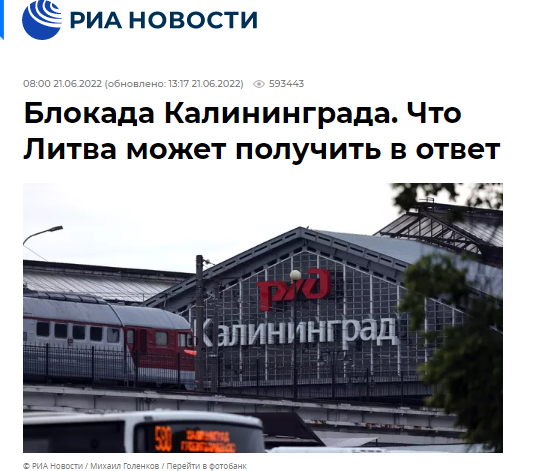
Source: https://ria.ru/
“MOSCOW, June 21 — RIA Novosti, Mikhail Katkov. Vilnius has actually blocked the land transport corridor connecting “mainland’ Russia with the Kaliningrad region. According to preliminary forecasts, supplies to the enclave may be reduced by four times, and the list of goods will be reduced by half. RIA Novosti has been looking into the situation.
Vilnius has banned the transit of sanctioned goods since June 18, stating that it has coordinated actions with the European Union. According to theGgovernor of the Kaliningrad region Anton Alikhanov, this is about 40 to 50 percent of transit cargoes, an embargo on which can lead to economic suffocation of the region.
According to Dmitry Chemakin, former vice-president of the Kaliningrad Chamber of Commerce and Industry, the volume of supplies may fall four times. However, local authorities and businesses have been preparing for difficulties in advance, so they expect to avoid extremely negative scenarios. In the meantime, they plan to increase the number of ferries that will run between Ust-Luga and the Baltic. Four vessels are currently operating on the line, and another one will appear in September. In the event of a complete transport blockade of the Kaliningrad Region, about 20 vessels of different classes will be required, but even five will be enough to load the railway and ferry complex in Baltiysk by 100 percent. Spending on infrastructure development, according to Alikhanov’s preliminary estimate, will amount to about ten billion rubles.
However, the speed of construction depends not only on the source and amount of financing, but also on logistics — building materials are also under sanctions. In addition, as Dmitry Lyskov, the press secretary of the governor of the Kaliningrad Region, told RIA Novosti, coal will stop being imported through Lithuania in August, and other types of fuel will stop in December.
‘Since the beginning of the crisis, many enterprises have started switching to ferry services, realizing that sooner or later Lithuania would close its borders. But the ships sailing to us are completely clogged, while in Ust-Luga — empty. If the sea remains the only opportunity for transit, subsidies from the federal centre will be needed. Otherwise, prices for imported goods will be very high for consumers,’ says Svetlana Nizhegorodova, Business Ombudsman for the Kaliningrad Region. At the same time, the human rights activist is confident that with the right number of ferries and the financial support of the carrier, the impact of sanctions on the region will be minimized.
In 2021, 50 percent of cargo reached the region by rail, 40 percent by sea, and ten percent by cars and airplanes. The fifth package of European sanctions imposed against Russia in April 2022 affected cargo transportation, but Kaliningrad was the exception. It was believed that this was due to the agreements signed in the early 2000s, under which Lithuania pledged not to interfere with supplies to the Russian exclave in order to get into the European Union. Deputy Speaker of the upper house of Parliament Konstantin Kosachev said that Lithuania violated international legal pacts when it banned the transit of goods. In addition to the agreements between Russia and the EU, he mentioned the WTO agreement on tariffs and trade and international transport conventions. The politician did not rule out that in the future the West may also violate the UN Convention on the Law of the Sea, thanks to which ships come to the Kaliningrad region through neutral waters. There is a possibility that Russia’s opponents will do the same with the airspace, the senator believes.
Federation Council member Andrey Klimov called the blockade a direct aggression and suggested resorting to self-defense. His colleague Andrey Klishas regarded the Lithuanian restrictions as an encroachment on Russia’s sovereignty and considered a ‘very tough’ response possible. ‘Let them look at Ukraine and think about what other methods can be adopted on our part,’ Senator Sergei Tsekov said. The Russian Foreign Ministry has demanded that the Lithuanian authorities immediately lift all restrictions imposed, which Moscow considers ‘openly hostile.’ Otherwise, Russia reserves the right to retaliate. At the same time, the ministry did not explain what kind of reaction there might be.
There is a popular version in the Western media that in the event of a blockade of the Kaliningrad region, Russia will break through the so-called Suwalki corridor from the territory of Belarus. Its length is about 65 kilometers direct or about 100 kilometers along the Polish-Lithuanian border. The route was named after the Polish city of Suwalki. However, experts consider the military scenario the least likely of all possible. Despite public statements, politicians and diplomats understand that an invasion of one of the NATO countries can lead to irreparable consequences, up to the outbreak of the Third World War.
‘Lithuania has blocked Kaliningrad on land, and we, with the support of Belarus, can respond in kind. Moreover, the entire Baltic States will suffer, local ports will be completely useless,’ explains Alexei Leonkov, editor of the Arsenal of the Fatherland magazine. Economist Leonid Khazanov agrees with him, but he suggests adding energy to the transport blockade. ‘There is a liquefied gas processing terminal in Klaipeda. Its capacity is four billion cubic meters. If Russia stops selling blue fuel to Lithuanians, not only this enterprise, but also the entire local industry will stop without a single shot,’ the expert points out.
Nevertheless, experts believe that attempts to reach an agreement with the Lithuanians will lead to nothing. Any chance of success is possible only in negotiations with the European Union, where there are different views about relations with Moscow. In early April, Vilnius declared full gas independence from Moscow. However, experts do not rule out that we are talking about deliveries via pipeline, while liquefied natural gas, including Russian, was both transported and transported by sea. In addition, there are proposals to disconnect Lithuania from the single electric grid of BRELL, which also includes Russia, Belarus, Latvia and Estonia. The Baltic states were going to leave the energy system by 2025, but in this case [Russian disconnection of] Vilnius may be accelerating.”
THE BALTIC ELECTRICITY GRID, BRELL
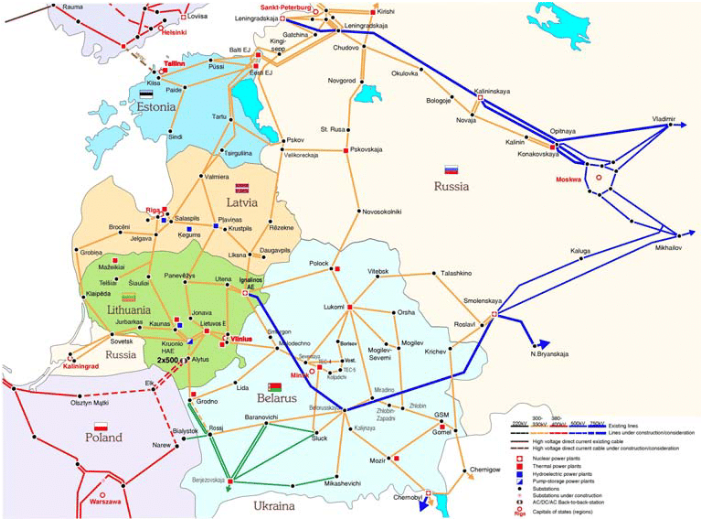
To enlarge, click on source.
The Kremlin
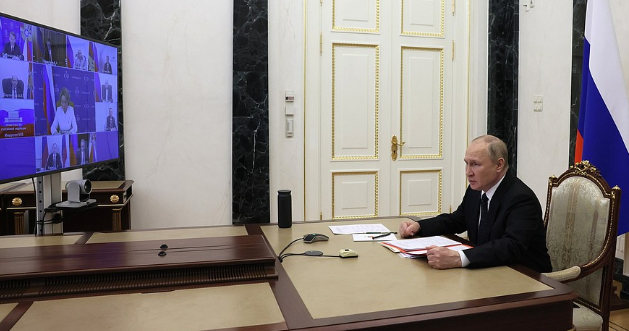
Source: http://en.kremlin.ru/
Russian Foreign Ministry
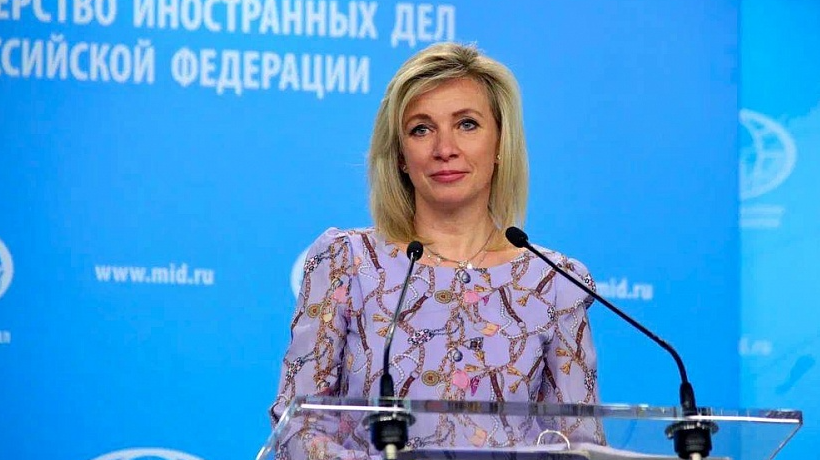
Source: https://www.mid.ru/
At the Foreign Ministry briefing spokesman Maria Zakharova had this to say:
“Question: Do I understand correctly that there is no need to talk about concrete tough measures against Lithuania for blocking transit to the Kaliningrad region, that is, there are no concrete measures by and large.
Answer: As I said, they are being developed. This is an interdepartmental issue. Given that the measures will not be diplomatic, but practical, they are now being worked out in an interdepartmental format, we are not talking about this not because we are hiding something, but because the process of their coordination and elaboration is underway. I would like to emphasize once again (the third time for today’s briefing): we have told the European Union and Lithuania about the need to change the steps they have taken. Perhaps something from that side will be changed, and, accordingly, our reaction will be different.
I would like to draw your attention (it is unlikely that you will write about this, but I would like you to quote me) that it is illogical for the European Union, its individual members, on the one hand, to say that a threat to global food security is being created, and on the other hand, to block the delivery routes of goods directly to themselves or to your continent. Either we proceed from the fact that food security for the European Union, as they say, is of fundamental importance and they care about the fate of the world, but if so, then it is necessary, at least, to free up entire sectors of the economy, logistics, transport so that they have the opportunity to work for the benefit of that very food security. How many times do you not say the word ‘food’ until it reaches the consumer before he will fail to become full.
It’s the same story here. Food must be transferred, delivered. It must be paid for. If all this is blocked, and now also with such a specific point solution, then what are we talking about? This applies not only to food security, but fundamentally to the humanitarian sphere.
Question: When you talk about the practical plane, is it possible to understand that we are talking about the economic plane?
Answer: When I talk about the practical plane, I mean that we are not talking about measures of a diplomatic nature, but about practical steps. Let’s not get ahead of ourselves. We need to wait for the appropriate decision to be made.”











Leave a Reply